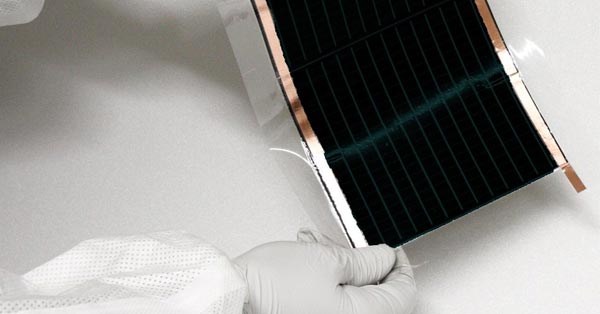The U.S.-based thin-film solar cell manufacturer, Ascent Solar Technologies (ASTI), announced the completion of a transaction to acquire the 15-MW thin-film cell manufacturing assets of Switzerland-based Flisom AG. This acquisition aims to provide more solid support within the region for the EU energy transition while also meeting the increasing thin-film cell demand in the U.S., Europe and Asia.
It represents a significant milestone in ASTI's turnaround plan, as it enables the company to generate new committed contract revenue, expand production capacity and establish an international presence.

Photo: Ascent Solar Technologies
Specifically, this transaction is expected to provide ASTI with the opportunity and proven manufacturing capacity to establish new revenue streams in the luxury goods and building-integrated photovoltaics (BIPV) markets and vastly increase ASTI's nameplate capacity by 300% as a whole. It is also noteworthy that the acquired assets can produce roll-to-roll thin-film outputs up to one meter wide and one kilometer long, increasing production efficiency and enhancing competitiveness.
Through the transaction, ASTI will utilize the assets to fulfill the outstanding contracts of Flisom. The management of ASTI will also seek to renew and expand customer contracts directly as the counterparty when they become due.
Over the past several years, there has been a growing demand for alternatives to traditional rigid crystalline panels that can be used in scenarios where there are constraints related to land, form-factor or weight, especially in Europe and Asia.
"Our flexible, lightweight and proven thin film is made for these scenarios and provides a needed and proven alternative to traditional rigid panels. By supporting the global push for more solar power and demonstrating the benefits of solar module form-factor diversity, we will establish ASTI as a global leader in the PV industry," said Jeffrey Max, President and CEO of ASTI.
After the transaction, the company will continue to be headquartered in Thornton, Colorado. Management expects the acquired assets to generate EBITDA-positive operations as early as this year's second half.
Thin-film cells have been gaining increasing traction attributed to their merits of cost savings, flexibility to cater to extensive applications and continuous improvements in efficiency. Pioneers like Midsummer have also tried to combine silicon and thin film technologies to create efficient tandem cells close to commercialization.